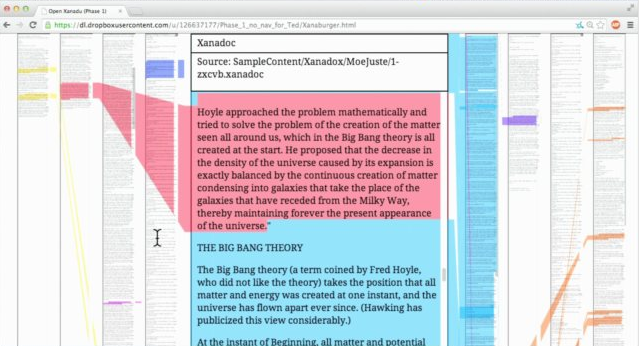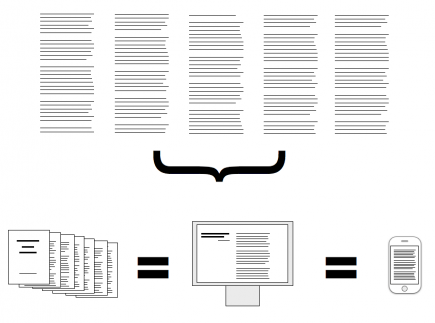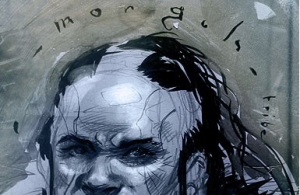From my students I heard about the game Mastaba Snoopy created in Twee and TiddlyWiki and being taught in another Humanities Computing course (our students are vectors of influence.) Here is a review where you can download the single HTML page that is the bizarre text adventure, Mastaba Snoopy is a Cronenbergian nightmare vision of childhood. The story takes place14,000 years in the future when a mutable alien has destroyed us and then reinvented itself following a collection of Peanuts comics. Play it.
Category: Hypertext Fiction
Shade
>look
The tiny figure crawls out from under the sands. It’s dead.
“You win,” it says. “Okay, my turn again.”
>…
Nothing left to do. Time passes.
The sun crawls higher.
*** SHADE ***
I just finished playing the interactive fiction (IF) Shade (2000) by Andrew Plotkin. A poetic work that plays with the genre without playing for the sake of playing. The meditation on life and the end of the game is for real and fiction. You can see other fictions by Plotkin at Zarf’s Interactive Fiction and/or read a nice review Enlightening Interactive Fiction: Andrew Plotkin’s Shade by Jeremy Douglass (electronic book review: 2008). I also recommend the review as a nice introduction to IF in general.
If you need some hints (as I did) see the comments here (and then enjoy his other posts).
Xanadu Released
Hacker Trips has an article about how Ted Nelson’s Xanadu finally gets released after 51 years (with Transclusion). The article describes a conference in Ted Nelson’s honour. At the end he is quoted to the effect,
To wind up his story, Ted Nelson stated that he was “dealt one of the best hands in history, and misplayed it to the hilt. [He] could have accomplished so much more. [He] was here 1st, and it’s all gone wrong. [He] believes this would be a very different world and better world if [he] had gotten leverage. The world has gone the wrong way.”
Nelson also announced a demo of a working version of Xanadu with transclusion. Open Xanadu is up at the Xanadu site.
cyoa
cyoa is a great essay/visualization/animation about Choose Your Own Adventure books. There are visualizations of the choices and some great animations of the flow of choices.
The whole essay/site is beautifully designed (and it has a colophon.) It is gesture of love towards Choose Your Own Adventures.
War and Peace gets Nookd
From Slashdot I found this blog entry Ocracoke Island Journal: Nookd about how a Nook version of War and Peace had the word “kindle” replaced by “nook” as in “It was as if a light has been Nooked (kindled) in a carved and painted lantern…” It seems that the company that ported the Kindle version over to the Nook ran a search and replace on the word Kindle and replaced it with Nook.
I think this should be turned into a game. We should create an e-reader that plays with the text in various ways. We could adapt some of Steve Ramsay’s algorithmic ideas (reversing lines of poetry). Readers could score points by clicking on the words they think were replaced and guessing the correct one.
A walk through The Waste Land
Daniel sent the link to this YouTube video, A walk through The Waste Land, that shows an iPad edition of The Waste Land developed by Touch Press. The version has the text, audio readings by various people, a video of a performance, the manuscripts, notes and photos. I was struck by how this extends to the iPad the experiments of the late 1980s and 1990s that exploded with the availability of HyperCard, Macromedia Director and CD-ROM. The most active publisher was Voyager that remediated books and documentaries to create interactive works like Poetry in Motion (Vimeo demo of CD) or the expanded book series, but all sorts of educational materials were also being created that never got published. As a parent I was especially aware of the availability of titles as I was buying them for my kids (who, frankly, ignored them.) Dr. Seuss ABC was one of the more effective remediations. Kids (and parents) could click on anything on the screen and entertaining animations would reinforce the alphabet.
Web literature in China
From a story in the Guardian I discovered that online reading is taking off in China. According to China Daily story, Web literature turns a page with profitable storyline a large percentage of Chinese web users are reading long serialized novels for a 30-50 cents per 100,000 words (which is about a dollar for every 600-1000 pages!) The Guardian story Has China found the future of publishing? suggests that the convenience, the price, the type of serialized literature, the economic model (of independent authors and commercial sites), and the proliferation of e-readers has made it a viable business. I’m guessing that serialization is a way of discouraging pirates – people who want the next chapter will pay to get it as soon as possible.
Tom McCarthy: International Necronautical Society
One of the people short-listed for the Man Booker prize is Tom McCarthy who, among other things created the International Necronautical Society. This “semi-ficticious organization” reminds me of OULIPO. They are “in our house” and recruiting. They have a lovely Joint Statement on Inauthenticity. A necronaut according to the Urban Dictionary is an “Annoying hacker and general asshole in Counter-Strike and other online games.” Or it could be someone who navigates death.
They have a Twitter feed, twitter.com/necronauts
Craig Mod: Books in the Age of the iPad
Jon pointed me to an online and illustrated essay Books in the Age of the iPad by Craig Mod that makes an interesting argument about the relative uses of digital reading devices like the iPad. He argues that there are two broad groups of content:
- Formless Content which doesn’t have a well-defined form. This sort of content can be easily poured into new bottles from iPhones to iPads. It doesn’t matter what form you read it in. (The illustration above is meant to suggest that such content can be poured into print, screen, or moble.)
- Definite Content which does have a definite form. The form for such works matters to the content so you can’t easily pour it into a new form. Such content could be designed to be viewed on an interactive screen (and hence it would be awkward to pour it onto print) or it could be designed to be read in paperback (and hence it would be awkward to read it on the screen.)
Mod argues that we should start moving Formless Content to digital devices and in the case of Definite Content we should be willing to leave it on the platform it was designed for. Thus art books should stay on paper while cheap novels should be available also in digital forms for mobile reading.
Contrast this to Dale Salwak’s To every page, turn, turn, turn (Times Higher Education, Sept. 2, 2010), an online essay with the Times Higher Education bemoaning the loss of “deep reading.” I have no problem with Salwak’s defense of reading and the reading of books, but I’m not sure that there is anything inherently “deep” about books unless by deep he means longer (than essays on the web.) I don’t see why one can’t have a quiet, deep, reading experience off an iPad, though the argument might be made that the iPad has more distractions available. He ends with an argument I haven’t heard before – that books can be your friends (when you don’t have any?)
We all know that a love for books usually starts early in life. If our students come from homes where the predominant sound is the turning of pages, then from our experiences they will hear an affirmation of their own; if, on the other hand, they come from homes in which books are rarely seen, never talked about and seldom read, they may in time feel angry or cheated by their intellectual void. It is our task as educators and adults to provide a model for the reading life and the rewards and insights it can yield.
“Hold on to your books,” I say. “They will help you through. Let them be your best friend, and they will remain a solace in your life as they continue to be in mine.”
Of course today youth find false friends online not between the covers.
Stephenson, Subutai, The Mongoliad
Thanks to Slashdot I have been poking around a project that one of my favorite sci-fi authors is involved in, namely the serially online published project The Mongoliad.This work is being supported by a company Stephenson helped create called Subutai Corporation that has developed a platform called PULP for digital novels that have social aspects and multimedia extensions. The platform looks a lot like a structured wiki. The first materials for The Mongoliad are up and smartphone apps are supposed to be coming. I found it hard to read off the web, but I tend to like my sci-fi on pulp.
It will be interesting to see how they explore the medium for this multi-authored novel.
The New York Times has a good story on the project here.




